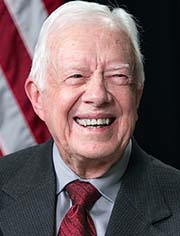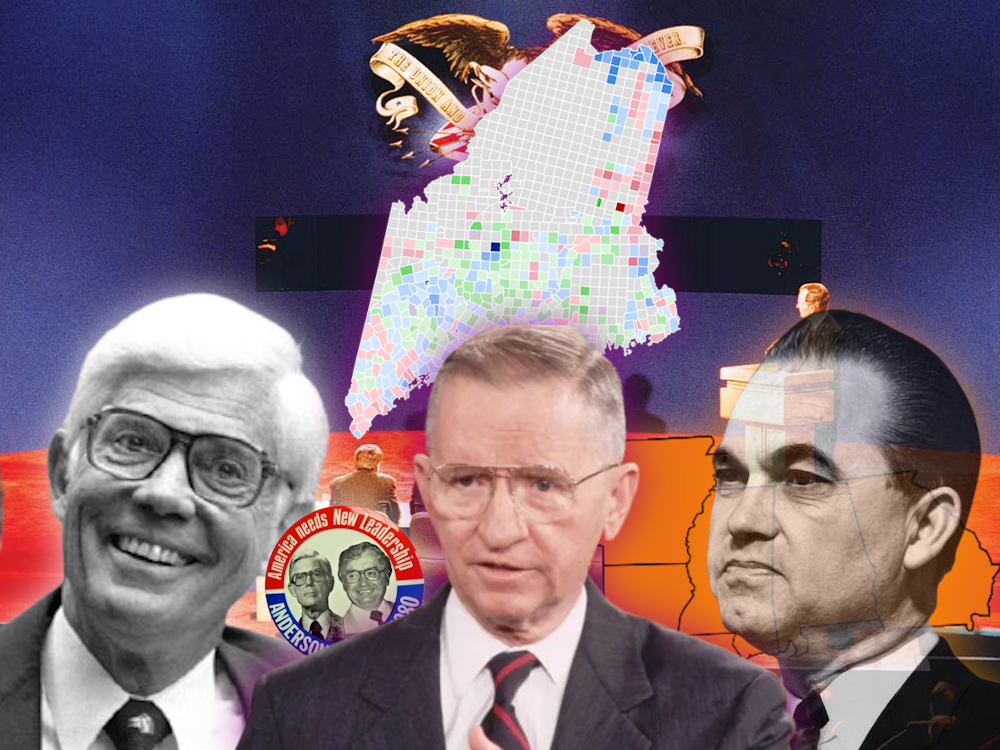Right now, it’s no secret to anyone in the United States that we’re seeing significant political gridlock in the current political system. We have a rather lackluster, if not an outright dysfunctional, Congress with the US Senate being controlled by the Democratic Party and the US House of Representatives narrowly being in Republican control. An insurgent faction of over a dozen representatives within the Republican party, known as the Freedom Caucus, on occasion holds legislation hostage or shakes up the party leadership, such as the McCarthy debacle, which makes significant pieces of legislation difficult to near impossible to get onto the President’s desk for a signature. While Democrats are less inclined to be obstructionists, they are far more likely to bury their heads into the sand and are often unwilling to compromise with the House GOP and Speaker Johnson.
It’s becoming increasingly destructive, and as the Declaration of Independence declared, “Whenever any form of government becomes destructive of these ends, it is the right of the people to alter or abolish it and to institute new government.” It’s time we enact our right, as the people of the United States, to alter the political system and perhaps even the government itself to reverse the self-destruction and international humiliation it is presently receiving.
Polls show that up to 62% of Americans are unsatisfied with the two-party system, so there are enough people to support a change. However, being unsatisfied with the system is obviously and, dare I say, not enough. Action is needed.
So what actions would need be to be taken? The first step would be to enact a form of proportional representation throughout the United States. In particular, according to the Washington Post, there is a bill known as the Fair Representation Act, authored by Representative Don Beyer (D-VA), which would create congressional districts with more than one member representing said district created by independent commissions rather than the state legislatures, and use a ranked voting system for voting in their representatives. That way, people’s specific views regardless of party politics are more equally represented on a Congressional level.
That means no more primaries for House races, just the general election. A system like this could be the medicine our current Congress needs to work for the people, not against the people. Probably, most importantly, in deep red or blue states, those who are political minorities within those states, such as Massachusetts Republicans or Kansas Democrats, can get a Representative or two elected to represent their views despite their views not dominating the state.

However, such a bill being signed into law still isn’t enough. To truly abolish the two-party system, a candidate not from the Democratic or Republican Parties must be elected to the office of President of the United States.
“Sean, are you crazy? That’s impossible!” I hear many of you thinking right now. However, there’s recent evidence to the contrary. Some of my more middle-aged and older readers may remember this one quite well or even have supported it themselves. In 1992, there was a serious independent presidential candidate who was polled to beat both incumbent President George H.W. Bush, a Texas Republican, and then-Governor Bill Clinton, of Arkansas, at certain points of the campaign season. Who accomplished this feat?
Meet Ross Perot. He was a Texan businessman, billionaire, US Navy veteran, and an advocate for Vietnam War POWs. However, most importantly, he was a staunch opponent of both the North American Free Trade Agreement (NAFTA) and the two-party system, when both Bush and Clinton supported both.
So, how did Mr. Perot respond? He launched his campaign as an independent. Quite quickly he got on the ballot in every state and, by the beginning of June, he was in the lead, with 38% of polled voters supporting Perot, as opposed to Bush’s 30% and Clinton’s 26%. He bought 30-minute slots on television where he’d go into detail about specific problems and how he would solve them, seasoned with his Texan accent, analogies, and way of explaining complicated topics, and this proved effective. He even boasted about how he would talk about certain topics that Bush and Clinton never talked about.
However, a series of scandals struck at his support. First, it was discovered that he made his campaign staffers take loyalty oaths to him. Then, for whatever reason, he claimed that Republican operatives attempted to break into his daughter’s wedding. It was also uncovered that he ran a private investigation on the Bush family sometime in the 80’s. During a speech to the NAACP, he said “you people,” which hurt his standing with black voters. All of these scandals led to him dropping out in July.

However, without warning in October, he re-entered the race; however, he never regained his lead in the polling. Viewers of the presidential debates rated him well; however, his performance didn’t help in the end. On election night, President Bush lost re-election, ending the GOP’s 12-year dominance over the office, with Governor Clinton being elected as the 42nd President of the United States. Perot didn’t win, but he still won an alarming amount of votes. In the National Popular Vote, he won 19,743,821 votes, which is 18.9% of the vote. For reference, that’s the highest amount of votes any third-party candidate has won, and percentage-wise, it was the best performance since Theodore Roosevelt’s run in 1912.
While Perot didn’t win any states, he did come in 2nd place in Utah and Maine, where he got just 14,237 votes shy of winning its 2nd Congressional District, which would’ve made him the first third-party candidate since George Wallace to win an Electoral Vote. Post-election polling also said that 36% of Americans would’ve voted for Perot had they thought he could’ve won. In a three-way race, that would’ve gotten him the presidency, or at least very close to it. He formed his party, the Reform Party, in the aftermath of all of this and ran again in 1996, though not going anywhere near his 1992 performance. Perhaps sadly, we will never know what America would’ve been like under a three-party system instituted by a Perot victory in 1992.

There have been other recent attempts at abolishing the system, such as John B. Anderson’s campaign in 1980, George Wallace’s in 1968, Gary Johnson’s in 2016, and, most recently, RFK Jr.’s flawed campaign this year; however, it seems none have gotten near Perot’s magic. But let’s say, hypothetically, of course, that in 2028, one magically wins the White House. What would be the benefits of that?
Well, voters will not have the dilemma of the “better of two evils” playing in their heads. Having more than two options will give voters a clear-cut choice that is tailored to their own political beliefs. Gone are the days when someone is sidelined into a small, weak faction within a large dominant party. They now have their own party, which they believe in. Another thing that multiparty democracies experience is a lack of extreme negative messaging; rather, they prefer to campaign on policy rather than attacks. Something like that to many Americans, I’d imagine, would be a breath of fresh air.
In my opinion, the best benefit is that in a multiparty democracy, it’s nearly impossible for one party to win over 50% of the vote outright. It might sound like a disadvantage, but bear with me on this one. No party having a majority in Congress would force parties to negotiate with each other to form coalitions. That inherently encourages sorely needed bipartisanship, especially in today’s America, while also moderating parties’ more extreme policy proposals. That means a multiparty system might provide a more politically united citizenry than a two-party system.
America has gone long enough in a two-party system; it’s no longer sustainable. It hasn’t been working for some time now, I’d argue, and we can abolish the system and institute a new one. It is our given right according to the founding fathers, the same men that both the Democrats and Republicans claim to look up to. But can they truly look up to them in the face of such an abomination of a system that they are directly complicit in maintaining? Shouldn’t we take charge ourselves and do what is right? We’ve almost done it 32 years ago, and I reckon with a strong leader taking the helm of the movement to abolish, we can finish what Ross Perot started. It won’t happen this year, but I earnestly believe that one day we will have our first independent president since George Washington.








Kate Conlon • Sep 23, 2024 at 5:04 am
Great job, Sean. Well written. I enjoyed reading this